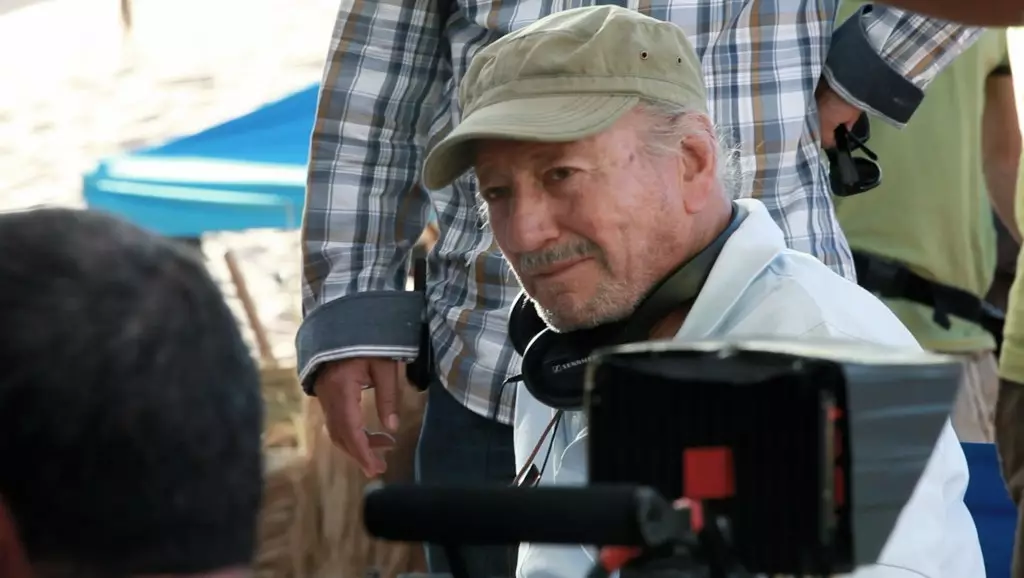In a world where artistic voices often struggle to be heard, the passing of Mohammed Lakhdar-Hamina at the age of 91 resonates profoundly within the cinematic landscape. His death on May 23, 2023, in Algiers, marks the loss of a pioneer whose artistic journey not only celebrated the tumultuous history of Algeria but also illuminated the path for future generations of filmmakers. As the sole recipient of the Cannes Palme d’Or from Africa with his iconic film Chronicles of the Years of Fire, Lakhdar-Hamina’s work serves as a powerful reminder of cinema’s ability to convey deep social and political truths.
The timing of his death is eerily prophetic, coinciding with the 50th anniversary of the very film that earned him this prestigious award. This alignment underscores the enduring relevance of his contributions, inviting audiences to reflect on both his artistic achievements and the brutal history of the Algerian War of Independence, a theme that propelled him into the cinematic spotlight.
Chronicling Struggles Through Film
Lakhdar-Hamina’s magnum opus, Chronicles of the Years of Fire, is an evocative portrayal of the Algerian struggle against colonial rule, told through the intimate lens of a peasant farmer. The film succeeds not just as a historical narrative but as a work of art that captures the essence of human resilience amidst oppression. Set between the late 1930s and 1954, it unfolds a story deeply rooted in the reality of colonization that resonates with countless similar narratives across Africa, making it a cornerstone in the canon of world cinema.
His ability to blend personal tragedy with collective memory is remarkable. The death of his father at the hands of French soldiers deeply marked him and shaped the narratives he chose to depict in his films. This personal connection imbued his work with an authenticity that captures the emotional landscapes of his characters, enabling audiences to grasp the weight of their struggles while providing an immersive experience that transcends cultural barriers.
Cannes and Beyond: A Visionary’s Journey
From the 1960s through the 1980s, Lakhdar-Hamina’s presence at the Cannes Film Festival was a bold statement in an industry still grappling with issues of representation. Competing for the Palme d’Or multiple times, including notable works like The Winds of the Aures, he established a notable track record that highlighted the richness of Algerian storytelling on a global stage.
Despite the 30-year hiatus from directing, his return to cinema with Twilight of Shadows in 2016 showcased not only resilience but an unwavering dedication to exploring the narratives of his homeland. This film, nominated for the Best Foreign Language Film at the 88th Academy Awards, symbolized a revival of his commitment to shedding light on issues affecting Algeria, from cultural identity to the nuances of a rapidly changing society.
Legacy of Civic Engagement and Leadership
Beyond his directorial achievements, Lakhdar-Hamina wore multiple hats in service of his country’s artistic and cultural life. His role as head of Algeria’s news service and the National Office for Commerce and the Film Industry illustrates his commitment to nurturing the broader cinematic ecosystem. His stewardship in these positions contributed significantly to the representation of Algerian cinema on the international stage, fostering an environment that encouraged new voices and stories.
Furthermore, his collaboration with entities such as The Film Foundation’s World Cinema Project in restoring Chronicles of the Years of Fire speaks volumes about his dedication to preserving African film heritage. Such initiatives lay the groundwork for future filmmakers, highlighting the importance of maintaining access to cultural narratives that might otherwise be lost.
Reflections on a Lasting Impact
Lakhdar-Hamina’s contributions must be seen through the lens of both art and activism. He was not merely a filmmaker; he was a voice for the voiceless and a bridge connecting his homeland’s troubled history with a global audience. As tributes pour in following his passing, it becomes increasingly vital to recognize that his legacy is not confined solely to the films he created but extends to the framework he established for future storytellers.
Therefore, while we mourn the loss of this visionary, we must also celebrate the enduring influence of Mohammed Lakhdar-Hamina in shaping our understanding of cinema as a powerful tool for reflection, understanding, and change.


Leave a Reply